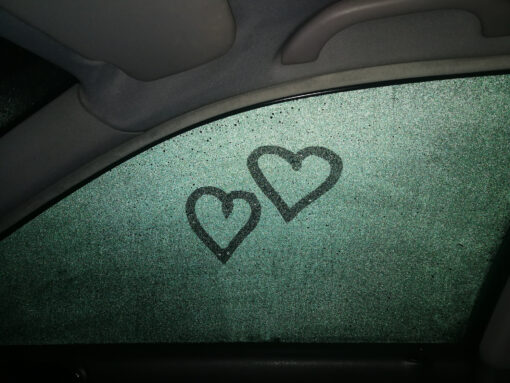The question of legality surrounding intimate acts in automobiles navigates a complex intersection of privacy and public decency laws. While no law directly prohibits sexual activities within the confines of a vehicle, the legal boundaries shift significantly when such acts are performed in public view.
This blog delves into the nuanced legal landscape that governs these actions and the potential consequences that individuals might face. Contact Chambers Law Firm at 714-760-4088 if you are charged with a sex crime in Southern California.
Understanding the Legal Framework
At the core of this issue is the distinction between private acts conducted in seemingly private spaces (like a car) versus the public nature of the location where the car is parked. The crux lies not in the act of intimacy itself but in its visibility to the public eye. If a couple engages in sexual behavior in a vehicle that is within a public area and visible to the public, they risk crossing into the territory of criminal offenses, including:
- Lewd conduct in public,
- Public indecency,
- Indecent exposure,
- Disorderly conduct.
These charges, predominantly categorized as misdemeanors, carry significant legal repercussions, including jail time ranging from six months to a year and, in some cases, mandatory sex offender registration.
Navigating Legal Charges and Defenses
Jurisdictional variances mean the specific charges and penalties can differ, but the underlying principle remains consistent: the visibility of the act to the public transforms a private act into a public concern. For example, Texas Penal Code 21.07 addresses “public lewdness,” classifying sexual acts in public places, such as parking lots where others can see, as criminal offenses.
However, legality hinges on the vehicle’s location and the likelihood of public exposure. Acts of intimacy in a car on private property, away from public view, do not typically breach legal standards.
Public Acts Defined
The definition of a “public” act is broad, potentially encompassing any behavior observable by the community at large. Locations like parking lots, public parks, and visible alleyways are clear examples where intimate acts in vehicles could lead to legal scrutiny. Yet, the probability of being seen plays a crucial role in determining the act’s public nature.
Defending Against Charges
Several defenses can be pivotal for individuals accused of engaging in sexual activities in vehicles within public view. Key defense strategies include proving:
- The vehicle was on private property and not in a public area.
- The accusation is false, potentially stemming from malicious intentions.
- The activities did not constitute sexual acts as defined by relevant statutes.
Specifics of California Law
In California, Penal Code 647a is frequently employed to address cases of lewd conduct in public, including those involving vehicles. This statute focuses on the act of touching private parts for sexual gratification in view of others who might be offended. Importantly, a defense under this law can hinge on demonstrating a lack of knowledge that the act could be observed and deemed offensive.
Penalties and Consequences
Violations under California’s Penal Code 647a are misdemeanors, with penalties including up to six months in jail and/or fines. While lewd conduct charges alone do not necessitate sex offender registration, accompanying charges, such as indecent exposure, can escalate the legal consequences significantly.
Call Now for a Free Legal Consultation
Engaging in sexual activities in a car blurs the lines between private intimacy and public decency laws. The legality of such acts depends heavily on the visibility and location of the vehicle. Individuals facing charges for public sexual acts should seek legal counsel to navigate the complexities of defense strategies and mitigate potential penalties. Chambers Law Firm is equipped to provide expert legal consultation and defense for those confronting these sensitive charges. For professional guidance and support, contact Chambers Law Firm at 714-760-4088.





